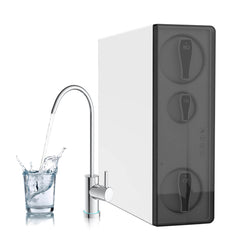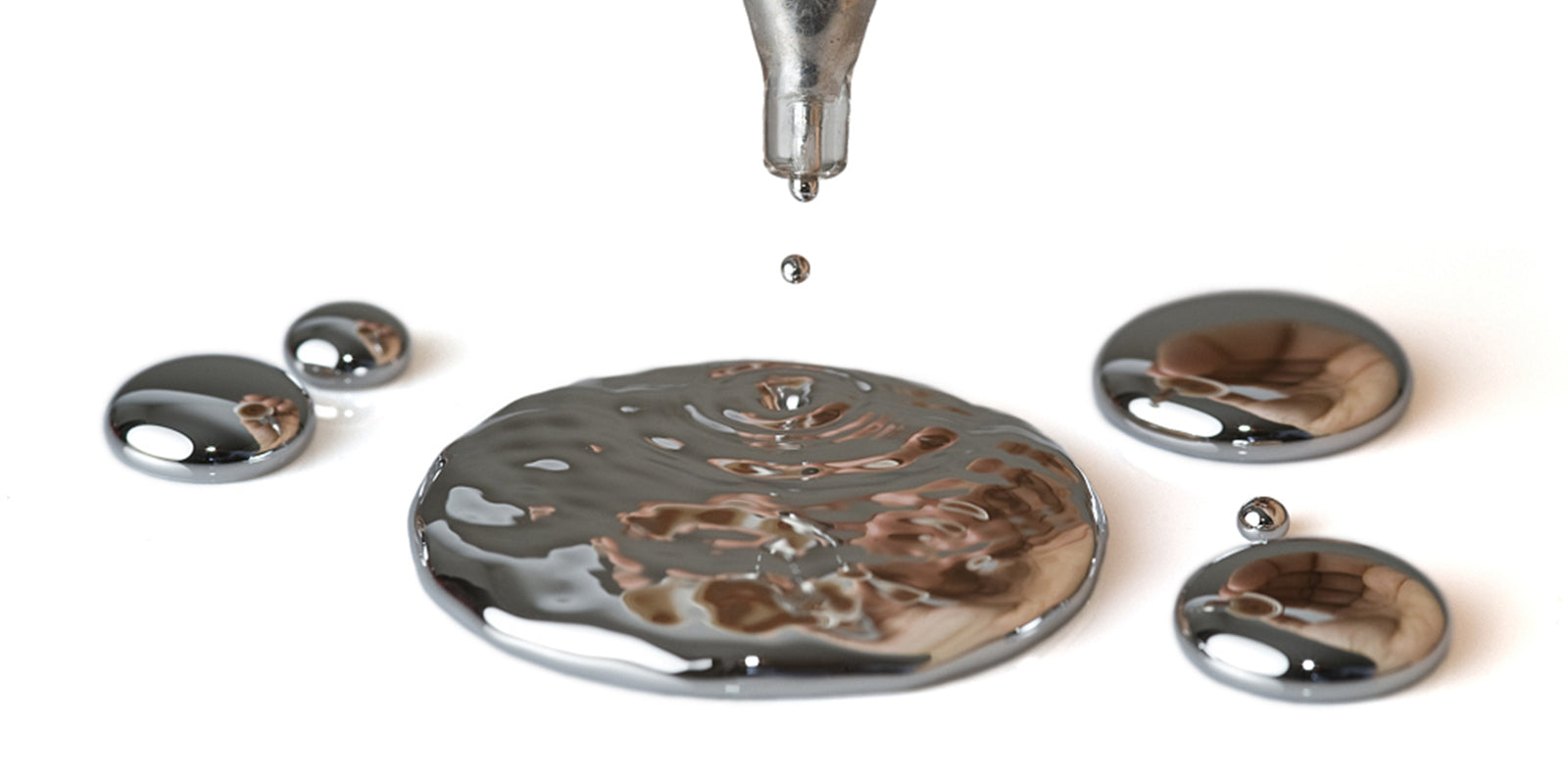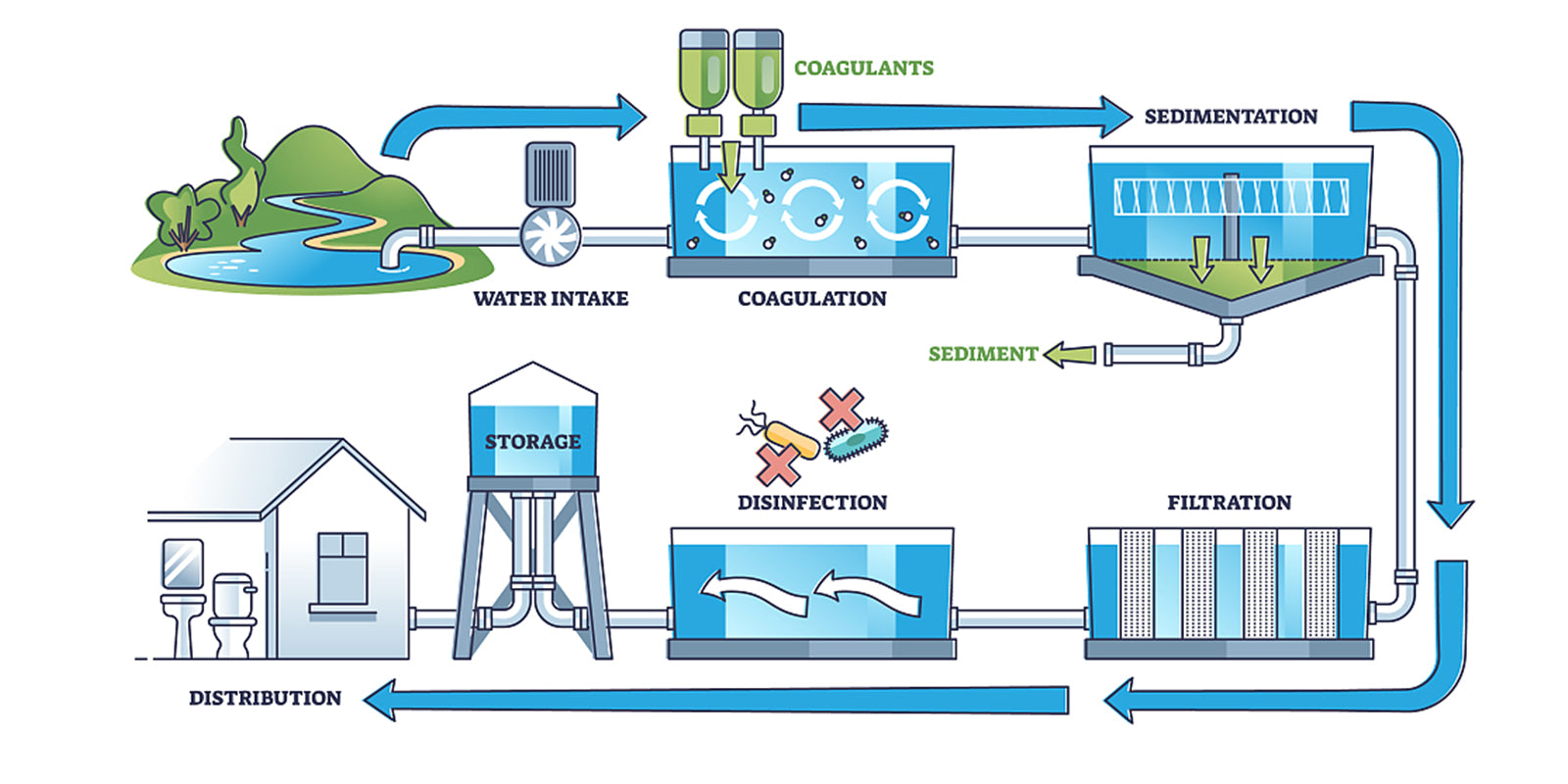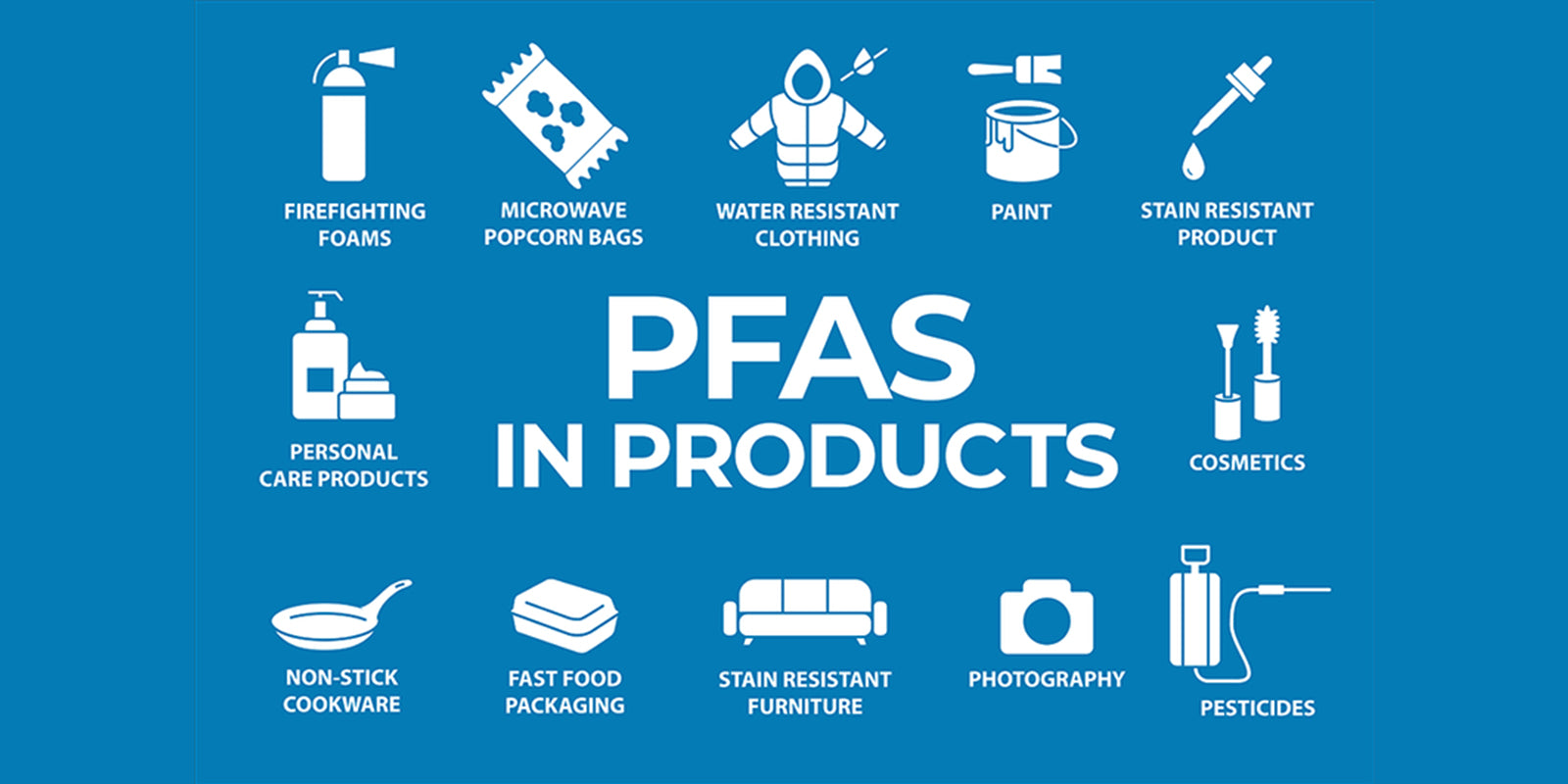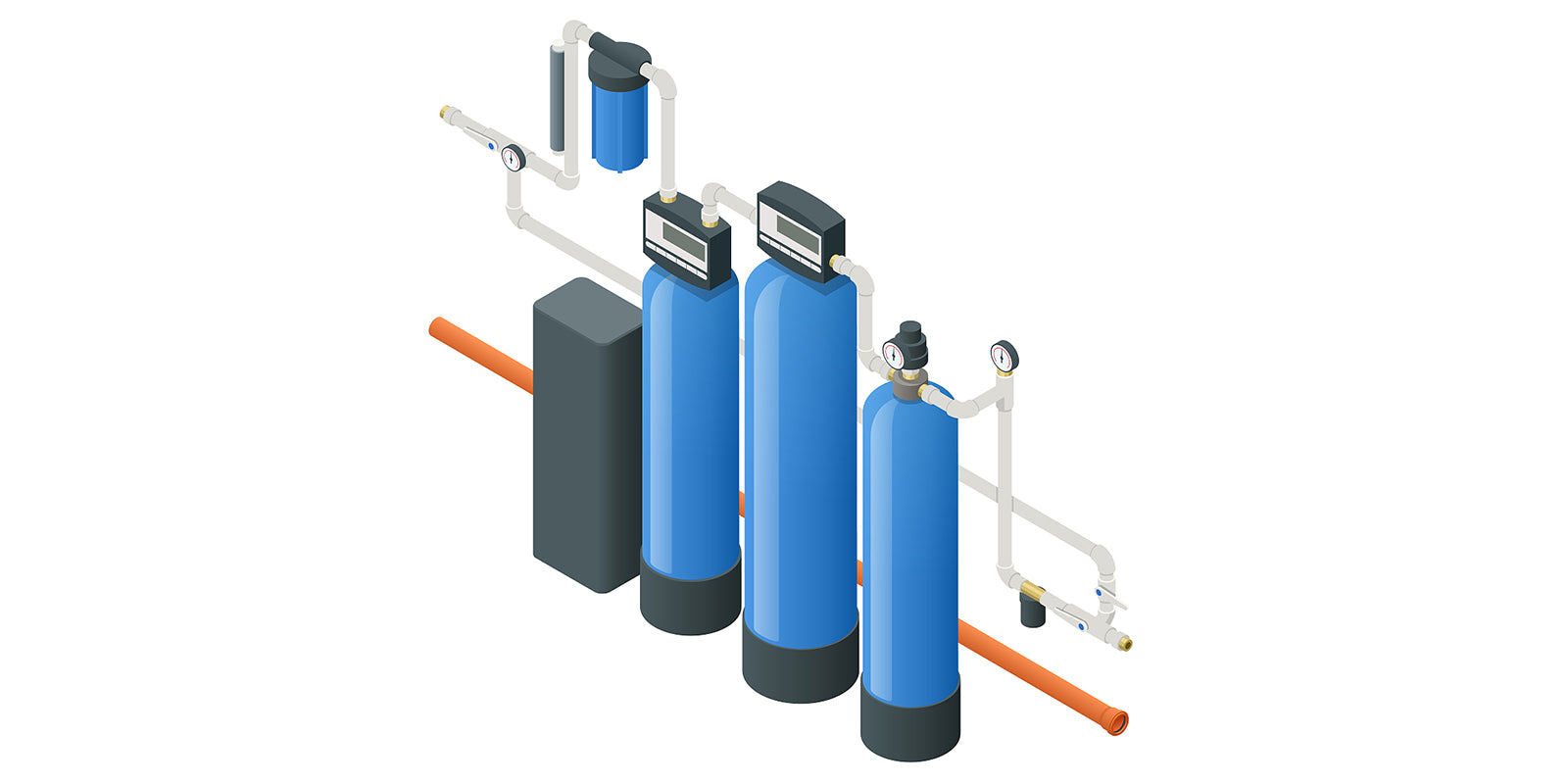You probably know that bottled water is terrible for the environment, can contain harmful contaminants, and is a thousand times more expensive than tap water. Many homeowners have made the switch from bottled water to drinking filtered water from reusable water bottles, but not all home filtration systems are created equally.
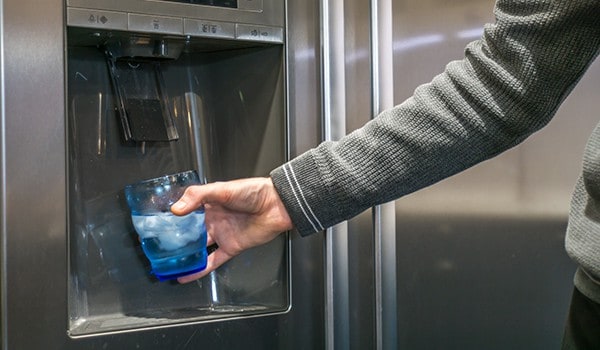
Many people who make the switch to filtered water simply rely on the built-in carbon filter inside their refrigerator. It seems like a good deal — buy a refrigerator and get a water filter for free.
Water filters inside refrigerators are usually activated carbon filters, which use absorption to trap contaminants in small pieces of carbon. The effectiveness of an activated carbon filter is dependent on the size of the filter and the amount of time the water is in contact with the filter media — with a larger surface area and longer contact time whole house carbon filters remove many contaminants.

However, the small size of refrigerator filters means fewer contaminants are absorbed. With less time spent in the filter, the water is not as pure. In addition, these filters must be regularly replaced. With dozens of items on their to-do list, most homeowners fail to replace refrigerator filters when needed. These filters also tend to be very expensive to replace.
Small activated carbon filters do a decent job of removing chlorine, benzene, organic chemicals, man-made chemicals, and certain contaminants that affect taste and smell. However, they do not protect against many heavy metals and inorganic contaminants like:
Fluoride
Arsenic
Chromium
Mercury
Sulfates
Iron
Total Dissolved Solids (TDS)
AWater 1 RO Reverse Osmosis Water Filtration System


